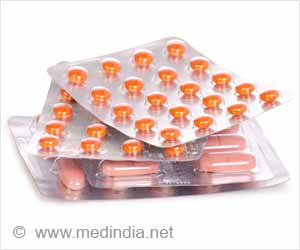A drug extensively used to treat acne can cause depression. This has been supported by several tests conducted on animals.
A drug extensively used to treat acne can cause depression. This has been supported by several tests conducted on animals.
Recently, the drug- Roaccutane, which effectively cures serious cases of acne, has been associated with severe side-effects like suicidal behaviour. Though the packaging of the drug mentions these risks, the reason for the occurrence of such side-effects is not known. It has not been proven so far that the drug is responsible for depression; moreover, teenagers with severe acne may feel depressed being concerned about their appearance.The effect of Roaccutane on mice was studied by a team of researchers from the University of Bath and the University of Texas in Austin. The findings were reported in Neuropsychopharmacology.
"You can't ask a mouse if it is depressed," Sarah Bailey, of the University of Bath, said yesterday. "So we used two tests to model behaviour.
"Both involved putting the mice under stress. In one, they were put in water and forced to swim; in the other, suspended by their tails. Under these circumstances mice will normally swim, climb or thrash around to try to escape, interspersed with periods of immobility when they appear to be resigned. A mouse that is depressed will spend longer in the immobile state than one that is healthy. "
The adolescent mice were given Roaccutane in doses equivalent to that given to human adolescents. The team found drastic increase in the periods of immobility in mice.
"The conclusion is that Roaccutane tends to increase depression-related behaviour in adolescent mice, " Dr Bailey said.
Advertisement
According to new findings, brain-cell generation is essential in adolescents and adults too. There is an assumption that Roaccutane may affect the system involved in mood hormone, serotonin, production, thereby, reducing the levels. The study on the effect of Roaccutane reveals that only 5-10% are susceptible to the effect. However, retinoids may be concerned with Alzheimer's disease and schizophrenia.
Advertisement
Roaccutane hit the markets in the early 1980s to treat severe acne. Over 13 million people worldwide have been treated with the drug. The World Health Organisation reports that the use of Roaccutane has resulted in 720 cases of psychiatric problems with 84 suicides and suicide attempts.
Source-Medindia
GYT











